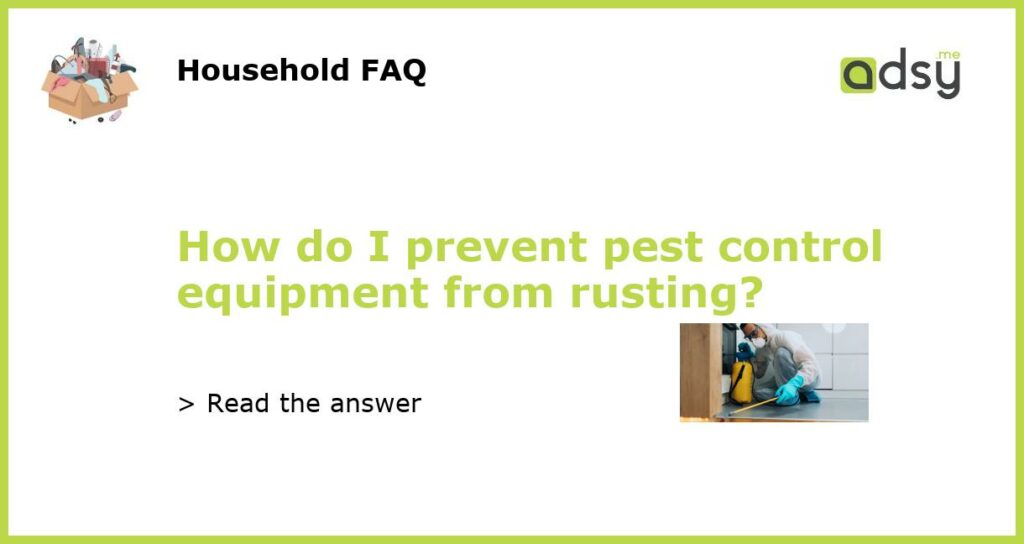Why Does Pest Control Equipment Rust?
Pest control equipment is often exposed to harsh conditions such as moisture, chemicals, and varying temperatures. These conditions can lead to rusting, which can damage the equipment and affect its effectiveness. Rust is the result of a chemical reaction between iron, oxygen, and water, forming iron oxide. When the surface of the equipment is compromised, rust can develop. Preventing rust is essential to ensure that your pest control equipment remains in good working condition and lasts longer.
Keep Your Pest Control Equipment Dry
Moisture is one of the main contributors to rust formation. It is crucial to keep your pest control equipment dry at all times. After each use, make sure to thoroughly dry the equipment before storing it. Wipe off any water or moisture using a clean, dry cloth. This will help prevent the formation of rust and extend the lifespan of your equipment.
Store Your Equipment Properly
Proper storage is key to preventing rust on your pest control equipment. Store the equipment in a dry and well-ventilated area, away from moisture and direct sunlight. Avoid storing them on the ground, as it can increase the risk of moisture buildup. Instead, use hooks, shelves, or designated storage racks to keep your equipment off the floor.
Regularly Inspect and Maintain Your Equipment
Regular inspection and maintenance of your pest control equipment can help identify any signs of rust early on. Check for any areas where the paint or coating may have worn off, as these are susceptible to rust formation. If you notice any rust spots, remove them immediately to prevent further corrosion. Use a wire brush or sandpaper to scrape off the rust, then apply a rust inhibitor or primer to protect the surface.
Apply a Protective Coating
Applying a protective coating to your pest control equipment can provide an extra layer of defense against rust. There are various types of coatings available, such as rust-preventive paints, sealants, or clear coats. Choose a coating that is specifically designed for outdoor equipment and provides resistance to moisture and chemicals. Make sure to clean and dry the equipment thoroughly before applying the coating to ensure proper adhesion.
Use Corrosion-Resistant Materials
When purchasing new pest control equipment, opt for those made with corrosion-resistant materials. Stainless steel, aluminum, and certain types of plastics are known for their resistance to rust and can help prolong the lifespan of your equipment. Consider investing in high-quality equipment that is specifically designed to withstand the rigors of pest control operations.

